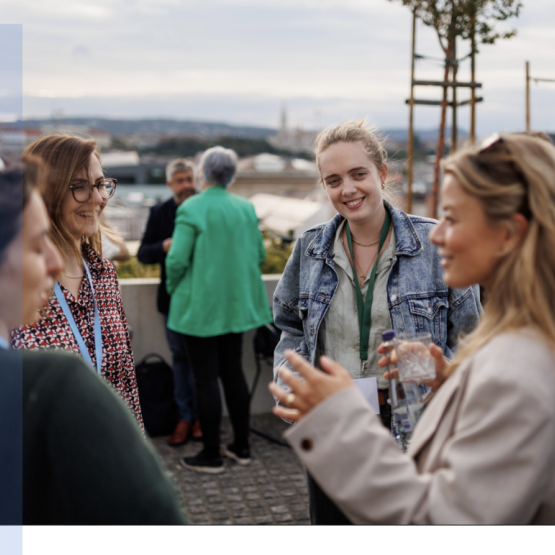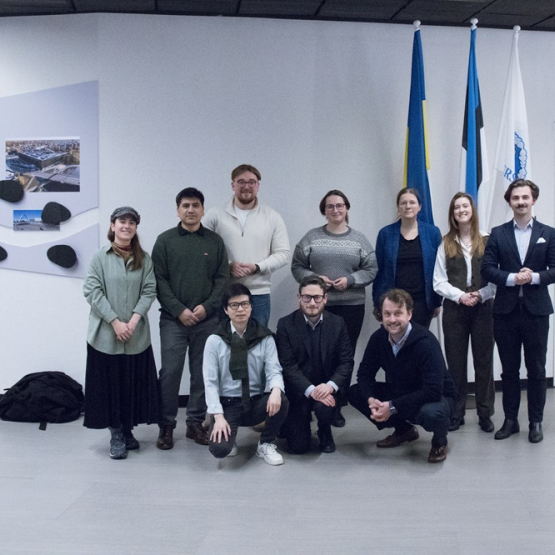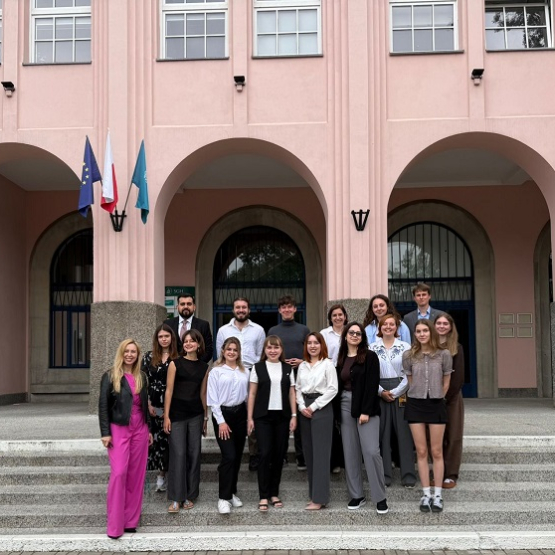Muriithi Njogu about the cooperation with SGH and the supreme value of human life
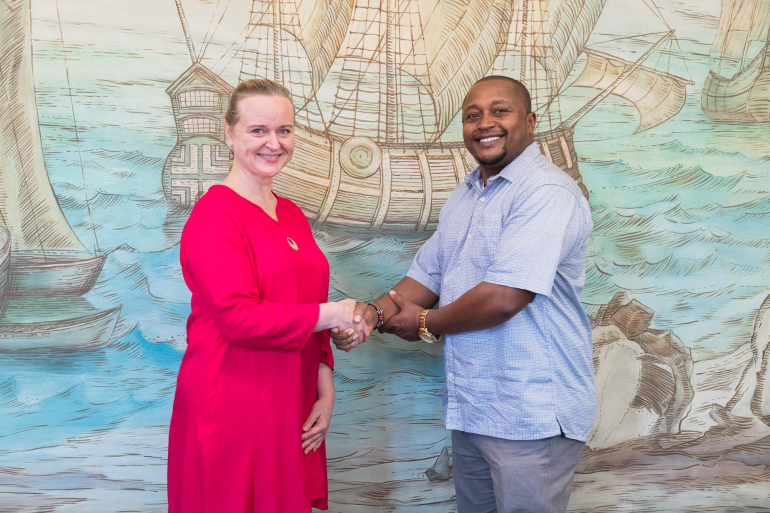
Director of the Business School from Strathmore University in Nairobi, Eliud Muriithi Njogu, tells “Gazeta SGH” about the cooperation with SGH Warsaw School of Economics, the exchange of students and lecturers, coping in the era of the COVID-19 pandemic, as well as the consequences of the war in Ukraine for Kenya and about the supreme value of human life.
Karolina Cygonek: SGH Warsaw School of Economics and Strathmore University in Kenya established relations in 2017. What areas of cooperation are you particularly satisfied with and why?
Eliud Muriithi Njogu: There's a lot happening and we are really happy with the collaboration between Strathmore and SGH, particularly regarding two critical areas. Firstly, there is a student exchange program where we have had the opportunity to send our students to Poland and give them the requisite international exposure. The feedback we received from students that benefited from that experience, was that it was life changing. As you may know, quite a number of our undergraduate students may not have had a chance to travel and see the world outside of Africa and to visit developed countries, which have different, established systems and a certain level of growth. So this is working very well for us. We are also planning to send more students in the next, maybe two or three months. This group of students are studying for their Masters’ degrees. Furthermore, we hope to introduce these excursions for our Executive Education students. The second area of collaboration that is working very well is the Faculty Exchange program - we have had a chance to host a number of faculty members from your school and hope to send our Faculty members to your institution. This will facilitate an exchange of knowledge and ideas between our cultures and foster exposure to new perspectives. It helps students to appreciate diversity and will promote their intellectual development. We live in a global village and these shared connections will help our students to understand how to thrive in a rapidly changing, interconnected world.
What form of cooperation/ what program would you like to develop together with SGH?
We have started conversations about a dual degree program and we will be exploring the possibility of having this model at master's level and if it works out well, we will also try the undergraduate level. We hope that we will be able to develop this even further to facilitate additional levels of research collaborations. We are also looking at developing programs together at the PhD level.
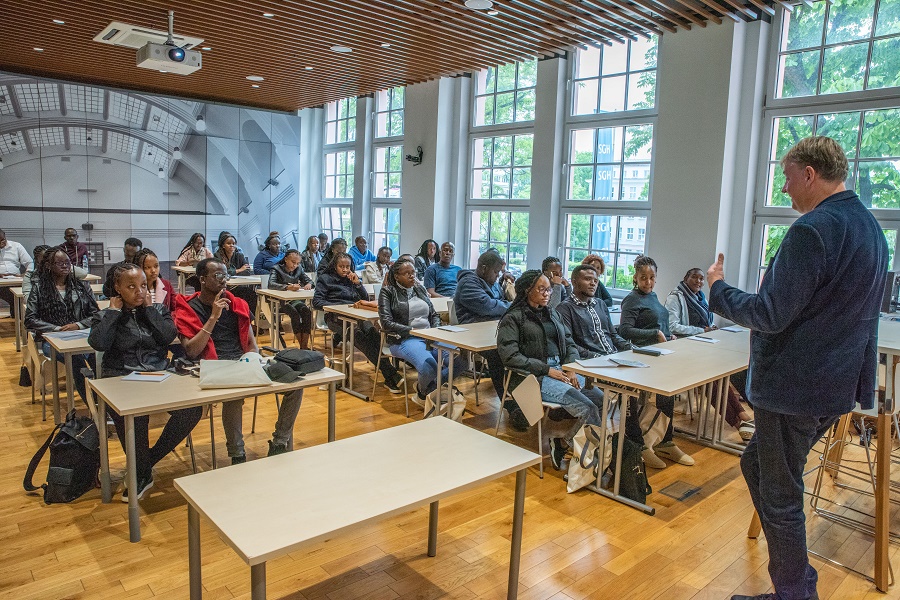
Recently, in late May/early June, there was a visit to SGH by nearly 40 students from Strathmore University as part of the "International Module" program. Would you like to report on the impressions of this large group in this very intensive program? Did you have any feedback from these students about their visiting here? What did they like, and what is perhaps room for improvement?
That's a tough question, but let's look at the three parts of the question. Firstly, the feedback from students is that they really liked the program, the way it was structured, because it had a lot of site visits, it had a lot of exposure to what is happening in your country. For example, the visit to the Warsaw Stock Exchange was amazing for them. They also had a visit to the Presidential Palace. It was amazing for them too. So this was a great value addition. The second level of feedback that we received was the quality of the lectures and excellent delivery by your Faculty. And beyond that they got more than they had bargained for by enjoying historical visits, and getting the opportunity to learn about the history of Poland. They were also taken to Cracow, and it was amazing experience for them.
Cracow is our pearl in the crown.
Yes, definitely. You also asked me about areas of improvement of the program. One of the things they felt is that the program was too packed, too intensive. They would have loved to have more time to explore the city. But I would not really worry too much about it because undergraduate students, they sometimes opt for easy things. But having travelled all that way, perhaps we can create more time for them to explore the city in future.
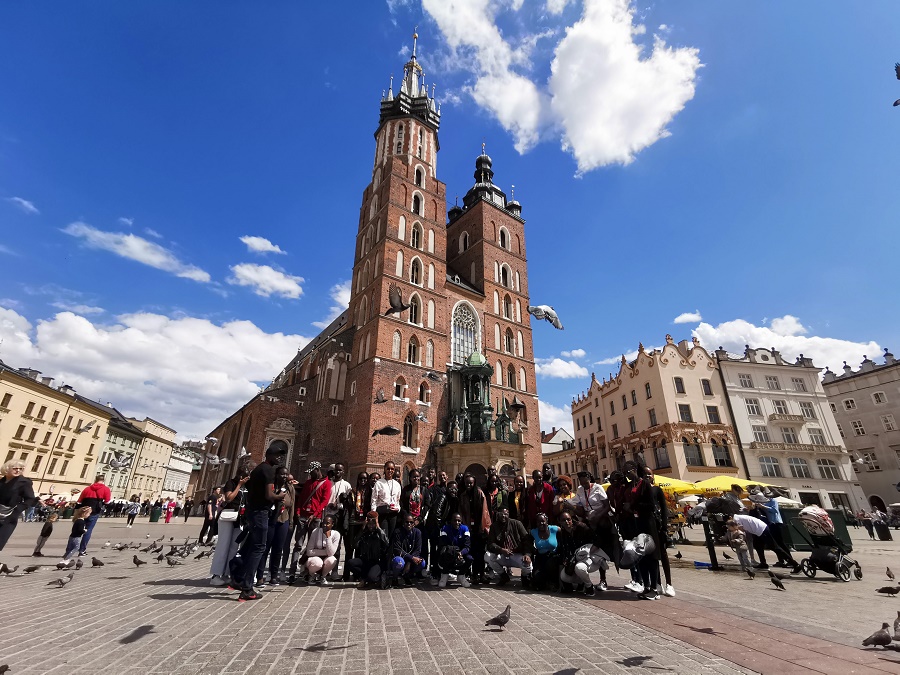
So now the question about the situation around the pandemic. How did your university deal with the COVID-19 pandemic? And what is the current situation that your university in regard of dealing with the pandemic and reorganization of education and remote learning, etc.? Would you give us your perspective?
Like everybody across the world, the pandemic caught us by surprise. In our country the president announced the closure of all learning institutions within a span of three days. So we had exactly three days to figure out what to do next. And being a private university, our business relies on school fees from students. Our Management board acted quickly and decisively and we continued our classes and operations online. Our policy as an institution is to ensure all of our students have access to laptops which proved to be a blessing when it came to connecting them to online learning. We also negotiated with the top Internet provider in the country to provide discounted packages for our students and staff. This enabled us to transition very fast from in person learning to online learning. And within three or four days, all the classes were fully online. So that's how we dealt with some of the operational challenges brought by the COVID-19 pandemic. Unfortunately, the stress that comes with online learning caught up with us after six months. We noticed that faculty members and students experienced various levels of stress related issues as a result of too much on screen time and lack of socialization because the country was closed down and people were in lockdown. We introduced several student and staff wellness programs and created systems to check on our community and initiate fundraisers and other community service projects such as free coaching programs for healthcare workers. From a revenue point of view, we were also impacted, but we were able to look for other sources of revenue such as grants and restructure some of our operations to help us to sail through the pandemic. Our faculty members started applying for more grants. We managed to only delay our academic calendar by around three months. So by 2020-2021, we were able to hold our graduation ceremonies. So we are back on track.
So now you are even more agile. And now everybody is happy that can visit other countries and to have exchange programs, because this is one of the most important aspects in studying, I would say.
Yes. Like you mentioned, one thing that was greatly impacted was the international trips. The world was closed, literally. And we were not able to hold our international modules. But late last year we started sending our students out and we are back to normal.
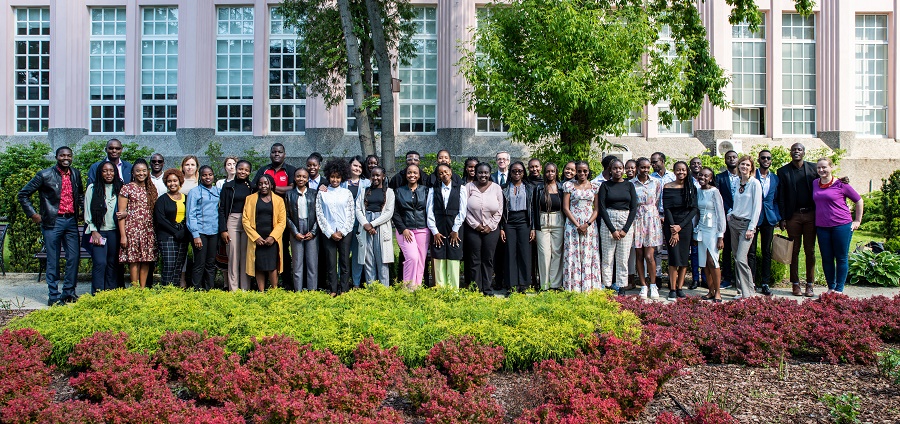
So now are you going through the hybrid phase of learning – are you giving online lectures and stationary classes?
Yes. So there are quite a number of lessons. That's where I was headed to in terms of the takeaways from the pandemic. So we have developed agility in terms of being able to offer both physical classes, online classes, and hybrid classes. So quite a number of programs have regained the physical aspect and maybe 30% are being delivered online. And the university is also working hard to develop fully fledged online-hybrid facilities.
Which form the students prefer more?
As a matter of fact, both. There are some who prefer the convenience of online classes. There are others who prefer stationary classes. There are tremendous benefits for students when they are able to physically interact. It is not just about a delivery in a lecture theater where you sit behind a computer, you learn more when you meet with other students, engage in social activities, extracurricular activities, sports and network with others. So we are really encouraging our students to come to campus.
You mentioned about your revenue problems, so to speak, or challenges? I'm asking about other challenges at you school, at your university. Would you develop this aspect?
Like other learning institutions globally, we suffered financially and also tried to help our community navigate through the challenges they were facing. The purchasing power of our parents diminished because of salary cuts and retrenchments and many businesses were forced to close. And given that our students rely on their parents to pay school fees, the ability for parents to pay school fees also went down. We introduced many cost management initiatives and started fundraisers to help our students continue their studies. We also introduced several free webinar series to help businesses in all sectors learn how to pivot to survive and even thrive in the new VUCA world.
And now, if you please, I have two "international questions". During a meeting of the United Nations Security Council just before Russia's aggression against Ukraine, a speech by Kenya's ambassador to the U.N., Mr. Martin Kimani, was widely echoed around the world. The diplomat explained how people in Africa understand Ukraine and what the Kremlin's acts of aggression mean in a post-colonial world. The ambassador said that the situation between Ukraine and Russia reminds him of African history. “If after independence we had decided to pursue ethnic, racial and religious homogeneity, many decades later we would still be mired in bloody wars. We agreed to recognize the borders we inherited, instead of creating nations looking back to the past with dangerous nostalgia," the diplomat said. To what extent are you close to this opinion?
This is quite interesting question. Looking back from the formation of our institution called Strathmore – it was formed to promote unity and equity in our country. During colonial times, it was not possible for people from different races to be educated together. So Asians had to go to Asian schools. White Europeans had to go to white schools and Africans were also segregated. Our founding father Saint Josemaria Escriva de Balaguer y Albas, sent people to Africa to start Strathmore University, and disrupt the racial discrimination. We have a motto that all shall be one. I am a firm believer in recognizing our common heritage as human beings and working towards a more peaceful, unified world. The deep spiritual foundations of our institution also encourage us to ‘’serve society’’ and we work on many projects aimed at solving societal problems at all levels of the University.
I had reason to ask this question because, as we all know, the war in Ukraine strikes everybody nowadays. And the shockwave of the Russian aggression in Ukraine quickly reached Africa too. As we know, prices of basic products went up to the point where famine and even memories of the Arab Spring began to loom on the horizon. My question is, with the war in Ukraine, is Kenya afraid of famine? Is there such a question in Kenya? And can you give our readers an idea of what the situation is in this regard?
There are three things currently affecting our economy. First, of course, as a result of climate change, these are changes in weather patterns. Unfortunately, we have not gotten adequate rains for the last three seasons, and hence our production capability for staple foods and other domestic crops has reduced. There are zones within the country that have been highlighted as disaster areas in need of food assistance. Secondly, the effects of the pandemic are still here with us. That trying period we went through - two years without good production capability, supply chain disruptions, reduced mobility of people and subsequent surge in demand, has affected the economic situation of our people and reduced their purchasing power. As a result of these challenges, even the ability to source and afford imported goods has been affected with the new shortage in dollar supplies. The third being the war in Ukraine which had a direct impact on us as we import wheat. The increase in fuel prices has also had far-reaching effects. The cost of fuel has increased from 90 Kenya shillings to 160 Kenya shillings, almost double the price. And as you know, the issues affecting fuel supplies in turn affects the mobility of people, goods, services and production at the factory level. So you realize that prices have gone up quite significantly and affects the ability of our people to purchase basic goods. So are we facing famine in Kenya? Yes, the situation is not very good. And like all the other parts of the world, we are also feeling the heat in terms of the rise in the cost of living.
Are you anyhow dependent on the imports of the wheat from Ukraine?
Yes, we are, because currently the government is being forced to provide subsidies for fuel, and maize flour which I don't think we will be able to sustain for long. The common “wananchi”, as we call the common people, they will still continue feeling the pain of the war in Ukraine.
Thank you very much indeed.
Thanks to the International Center at SGH Warsaw School of Economics for their help in preparing the interview and photos. The visit of Mr Eliud Muriithi Nyogu to SGH was carried out within Erasmus+ KA107 project.

